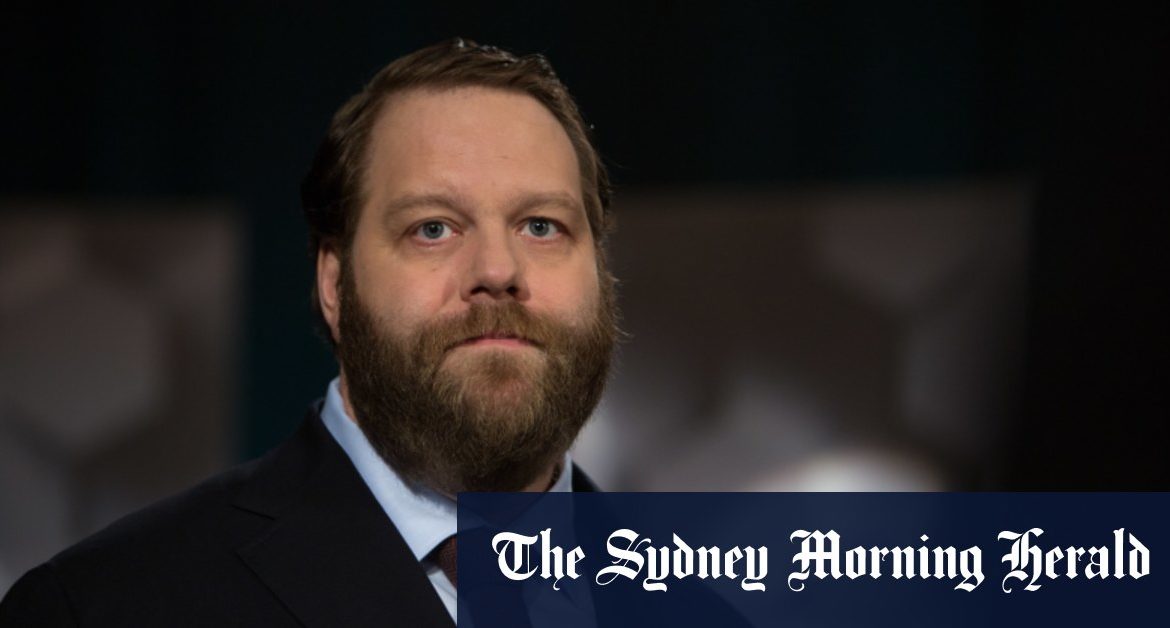But is he a visionary – a breath-of-fresh-air idealist, devoid of cynicism and unencumbered by the conventional ways – or is he a hopeless naif and a potentially anarchic force?
That’s the question at the heart of this eight-part Icelandic drama series. As it begins, on the eve of an election, Benedikt makes his first radical move, announcing the formation of a partnership with the Social Democratic Alliance during a live TV debate. He then declares that, if they prove successful in the election, he won’t accept the results and lead a government unless 90 per cent of the country’s eligible population votes. One of his key concerns is public disenchantment with and disengagement from the democratic process.
Watching someone driven by idealism and optimism, in an arena typically associated with cynicism and pragmatism, has its appeal. And this leader’s refusal to be constrained by customs and tradition gives the drama an engaging unpredictability.
Renaissance man and political idealist Benedikt Rikhardsson, played by Olafur Darri Olafsson.
It emerges that Benedikt, like The West Wing’s President Jed Bartlet (Martin Sheen), is something of a Renaissance man. Bartlet was a religious scholar, a keen student of history and geography who could speak Latin, a Nobel prize winner for economics and a chess whiz.
Benedikt is also an exceptional individual. A one-time theology student who knows his history, he plays the piano and composes poetry. A keen gardener, he reveres nature and appreciates that the ginkgo biloba he’s nurtured in his hothouse represents resilience as it was the only plant to survive the Hiroshima bombing.
Like Bartlet, Benedikt has a loving wife. Steinunn (Anita Briem) is the daughter of a political dynasty and the proprietor of a newspaper, a beautiful blonde devoted to her husband in all his eccentricities. She doesn’t even mind being woken at 5am by the sound of him happily playing the piano.
However, Benedikt exhibits little of Bartlet’s gift for thoughtful consideration, nor does he possess the calm pragmatism of Birgitte Nyborg (Sidse Babette Knudsen) in the acclaimed Borgen. He’s impulsive, sometimes childlike in his enthusiasm, able to be captured and galvanised by the flash of a lightbulb idea. It’s revealed that his stipulation of a 90 per cent voter turnout came to him while he was involved in the TV debate, minutes before he publicly announced it.
Equally impulsive is his idea that coalition priorities and policies should be shaped by public suggestions on Twitter, inspired by a casual conversation with junior staff member Hrefna (Puridur Blaer Johannsdottir).
Benedikt’s ideas and actions frequently catch those around him by surprise, but many people are charmed by his spontaneity, his lack of artifice and his resolve to tackle the issues that matter to the country and not deploy weasel words to avoid doing anything meaningful.
As the series unfolds, it also becomes apparent that Benedikt is a man disinclined to compromise: when he has what he believes is a great idea, he wants to run with it. But politics is all about compromise and negotiation, about alliances and – inevitably – betrayals. There are people accustomed to having power, like opposing party leader Finnbogi (Baldur T. Hreinsson), who resent Benedikt’s rising popularity and power. There are also members in his own ranks, such as his deputy, Grimur (Thor Kristjansson), who might be working to further their own ambitions.
Loading
What also emerges is another thing that Benedikt has in common with Jed Bartlet: a medical condition that has been kept secret and that could prove problematic.
A timely political study with the compelling Olafsson at its heart, The Minister explores the impact of one charismatic leader on those around him and on his country.
Most Viewed in Culture
Loading







